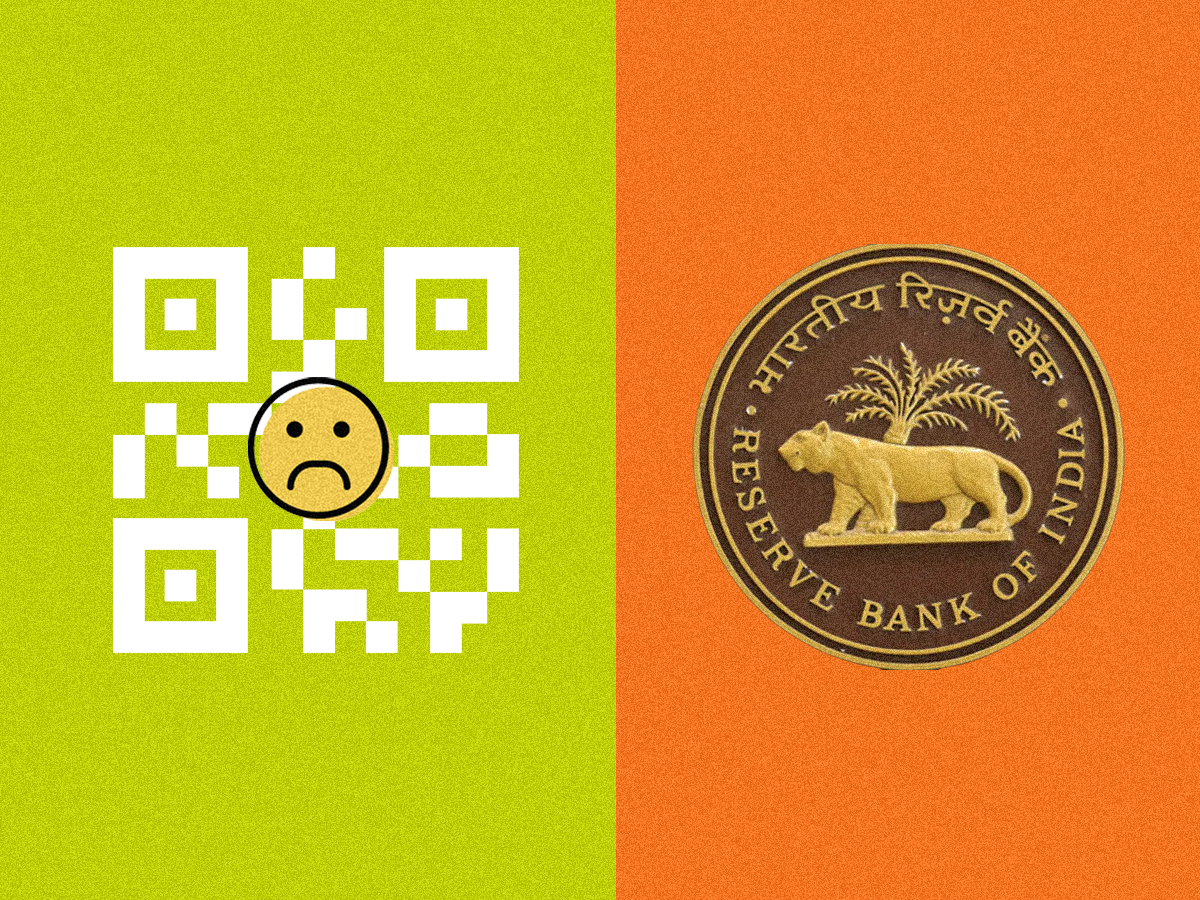Govt may seek deals for India-made chips; Google denied relief on second CCI order
Also in this letter:
■ NCLAT denies Google interim relief on Rs 936-crore CCI order
■ TCS rolls out 100% variable pay for most employees in Q3
■ RBI directs PayU’s to reapply for PA licence
Govt may seek deals with other countries for India-made chips
The centre is planning inter-governmental talks to seek commitments from other nations to procure made-in-India semiconductor chips, sources told us.
Strategy: These discussions are likely to be held with countries that don’t have extensive semiconductor manufacturing capacities and currently procure chips from nations such as China and Taiwan.
The idea is to get industries in those nations to either buy or give preference to India-made chips, they said.
“We are looking at this to ensure that the semiconductor chips that are manufactured in India have demand globally,” said a senior government official, adding that the talks are at a “very initial and exploratory stage right now”.
Locating demand: The Ministry of Electronics and Information Technology has also asked companies that have applied for incentives under the Rs 76,000-crore semiconductor manufacturing incentive programme to provide details of where demand is likely to come from.
Noting that demand in the semiconductor industry is cyclical, a senior official said contracts are almost always long-term, with some room for flexibility depending on global economic conditions.
State of play: At least five entities — including the Vedanta-Foxconn joint venture, the ISMC-Next Orbit Ventures-Tower Semiconductor (now owned by Intel) joint venture, and Rajesh Exports — that applied for incentives under the Indian Semiconductor Missions’ Rs 76,000 crore incentive scheme are awaiting official sanction to set up fabrication units.
The IT ministry is currently vetting these applications and has set up three sub-committees for this.
NCLAT denies Google interim relief on Rs 936-crore CCI order

The National Company Law Appellate Tribunal (NCLAT) on Wednesday denied interim relief to Google in its appeal against a second CCI order from October 2022, in which it fined the tech giant Rs 936 crore for allegedly abusing its dominant position by way of its Play Store policies and asked it to cease its “abusive” practices.
The NCLAT has agreed to hear Google’s case on April 17 and asked the tech giant to deposit 10% of the CCI fine with its registry within four weeks.
Catch up quick: On October 25, the CCI fined Google Rs 936.44 crore and issued a cease-and-desist order that prescribed eight corrective measures that Google Play would need to implement to correct its “anti-competitive practices”.
Just five days before that, the CCI had fined the company Rs 1,337 crore in a separate case related to its alleged abuse of dominance in the mobile operating system market through Android.
At the core of the Play Store case is Google’s policy that requires app developers to exclusively use its proprietary billing system for all customer payments, for which it charges a hefty commission.
SC agrees to hear Google’s plea in Android case: Last week, the NCLAT asked Google India to deposit 10% of the CCI’s Rs 1,337 crore fine in the Android case while refusing to stay the entire penalty.
Following this, Google approached the Supreme Court, as we reported on Wednesday morning. Later in the day, the court agreed to hear Google’s plea against the NCLAT’s refusal to stay the CCI’s order and Rs 1,337 crore penalty. The hearing has been listed for January 16.
Google has told the Supreme Court that the CCI order would require it to make “far-reaching changes to the Android mobile platform which has been in place for the past 14-15 years” and will lead to “lasting and irreparable harm” to Google, device manufacturers, app developers, consumers, and the wider Indian economy.
ET Ecommerce Index
We’ve launched three indices – ET Ecommerce, ET Ecommerce Profitable, and ET Ecommerce Non-Profitable – to track the performance of recently listed tech firms. Here’s how they’ve fared so far.
TCS rolls out 100% variable pay for most employees in Q3

Tata Consultancy Services (TCS) has rolled out 100% variable pay for 70% of employees for the December quarter, according to documents that we have reviewed.
The company awarded 100% variable pay for the August quarter of FY23 as well. The average payout for Infosys during that quarter was 65%.
Details: Senior employees may get their variable pay based on business performance, and may even get 100% or even more.
“A decision has been taken to pay 100% of the quarterly variable pay (QVA) to all employees up to C2 or equivalent grades covered under this plan. The individual payout for C3A or equivalent grades and above may vary depending on the business unit performance,” according to an email that CHRO Milind Lakkad sent to employees a day on Tuesday, a day after the company released its Q3 earnings.
Designations C3 and above are employees at the assistant consultant, associate consultant, and consultant levels.
RBI directs PayU’s to reapply for PA licence

Online payments gateway PayU India is the latest entity to have its initial payment aggregator (PA) licence application returned, with the Reserve Bank of India (RBI) asking it to reapply for the licence, two people aware of the discussions told us.
Details: The RBI has asked PayU India to reapply for the licence within three months of receiving the central bank’s response to its initial application, the sources added.
PayU India’s complex corporate structure was one of the reasons the RBI asked it to reapply, another source said. As a result, PayU India has stopped onboarding new merchants on its website.
Not the only one: Last November, the RBI returned the PA licence application of Paytm and asked the company to reapply for it. And in December, the RBI asked several payment gateway firms, including Razorpay and Cashfree, to stop onboarding new merchants.
Fintech unicorn BharatPe and Hitachi Payment Services are the latest firms to get in-principle approval from the central bank to operate as an online payment aggregator, we reported on January 10. Open, Infibeam, Cashfree, Paysharp and Worldline ePayments are among other firms that have already received such approvals.
TWEET OF THE DAY
ETtech Done Deals

■ Edtech firm Lead announced on Wednesday that it has raised Rs 160 crore in funding via a mix of long-term capital from Alteria Capital and Stride Ventures, and working capital financing from banks, including Standard Chartered Bank, HDFC Bank and ICICI Bank. ET first reported the development on January 11.
■ Bengaluru-based casual gaming startup Giga Fun Studios has raised $2.4 million in a seed round led by gaming focussed venture capital fund Lumikai and Fireside Ventures. Other participants in the round include All In Capital, Kettleborough VC and Riverwalk Holdings.
■ Metaverse-based startup Trezi said that it has raised over $2 million in a funding round led by World V and YourNest Venture Capital, along with two other investors, Auxano Capital and She Capital. The startup said it will use the capital to accelerate its platform development in the metaverse and enter high-potential geographies.
■ Kotak Securities has invested Rs 5 crore in Bengaluru-based fintech Banksathi by leading its pre-series-A round funding. Banksathi provides solutions for financial inclusion by creating an advisor-led digital distribution platform for financial services.
Other Top Stories By Our Reporters

ASCI report on edtech ads flags tall promises: According to an ASCI report, 83% of parents said that the claims and promises made in ads by edtech companies made them feel as if their child could miss out on some big achievements if they did not enrol. One of the patterns that the report found was the gender imbalance in representation of children that interacted with edtech, with representation skewed towards boys.
Soon NRIs can use UPI with their international numbers: Non-resident Indians (NRIs), who are holding bank accounts in India and are living abroad, will soon be able to use UPI with their international mobile numbers. The National Payments Corporation of India (NPCI) has allowed UPI platforms to onboard non-resident accountholders (NRE/NRO accounts) from ten countries with international mobile numbers with certain conditions. NRIs with NRE or NRO accounts in these 10 countries don’t need to have Indian mobile numbers to transact through UPI platforms.
Cabinet okays sops for low-value UPI transactions: The Union Cabinet on Wednesday approved promotional incentives for Rupay debit cards and low-value transactions of BHIM (UPI). Incentives worth Rs 2,600 crore have been approved for FY22-23 by the cabinet. The Cabinet has said that incentives will be given on the use of Rupay debit cards and BHIM UPI. In 2022, the UPI platform saw 7,404 crore transactions for Rs 125 lakh crore.
Global Picks We Are Reading
■ It’s winter, not doomsday (Rest of World)
■ As gig economy companies flee Europe, Getir is taking over (Wired)
■ Apple needs to take its time with augmented reality (WSJ)
For all the latest Technology News Click Here
For the latest news and updates, follow us on Google News.

